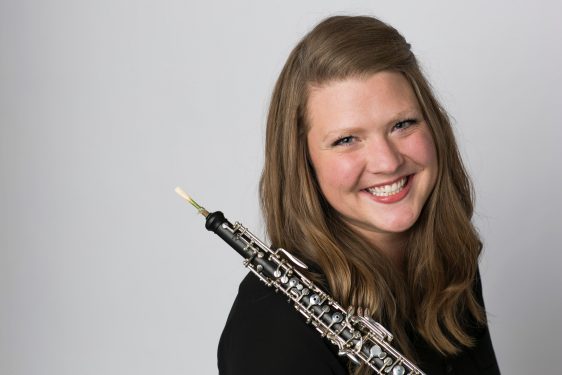Assistant Professor of Oboe and Community Engagement
College of Letters & Sciences | Mead Witter School of Music
Hometown: Kirkland, WA
Dr. Lindsay Flowers is the Assistant Professor of Oboe at the University of Wisconsin-Madison Mead Witter School of Music where she is a member of the Wingra Wind Quintet and guides student-generated community engagement projects. She received a Doctor of Music degree from Indiana University’s Jacobs School of Music under the tutelage of Linda Strommen and Roger Roe. Her background in athletics distinguishes her pedagogical approach in her emphasis on performance visualization, disciplined commitment, and supportive teamwork.
Lindsay is an Oboist and English Hornist with the Madison Symphony Orchestra, Wisconsin Chamber Orchestra, and Quad Cities Symphony Orchestra. She previously was a member of the Milwaukee Ballet Orchestra, New Mexico Philharmonic, and Civic Orchestra of Chicago. Lindsay was a founding member of the Arundo Donax Reed Quintet, Bronze Medal Winners of the Fischoff National Chamber Music Competition and recorded a duo album with Dr. Andrew Parker to be released in 2023. She has performed with the Milwaukee, Chicago, San Francisco, Indianapolis, Utah, and Nashville Symphony Orchestras and during recent summers with the Santa Fe Opera, Grant Park, Midsummer’s, Lakes Area, Apollo, Lake George, Castleton, Aspen, and Banff Music Festivals.
In addition to performing and teaching, Lindsay is recognized for her maintenance and repair of oboe and English horn gouging machines, particularly those designed by Ferrillo, Graf, Kunibert, and Gilbert. Lindsay is also curating gouger clinics for students and professionals to share her knowledge in this specialty.
Talks:
Music Community Engagement
The purpose of Music Community Engagement: to attract new audiences to the orchestra’s concert hall, to bring music to people who do not have access or are unable to come to an orchestra’s concert hall, to perform music in non-traditional concert spaces, and to provide quality K-12 educational initiatives.
